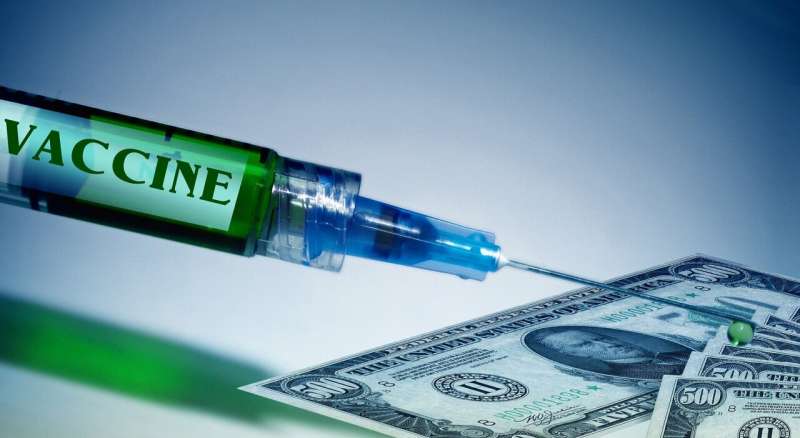
A World Trade Organization deal on patents is not the intellectual property waiver that campaigners hoped to see.
A decision by the World Trade Organization (WTO) to waive certain intellectual property (IP) rules in order to widen access to COVID-19 vaccines has been met with disappointment by global health campaigners.
The much-debated Trade-Related Aspects of Intellectual Property Rights (TRIPS) waiver was first proposed by India and South Africa in October 2020 to allow COVID-19 vaccines to be manufactured in developing countries without infringing patents held by big pharmaceutical companies, mostly in the global North.
The deal allows governments and vaccine producers to forego the procedural requirement of issuing a compulsory license for the production and exportation of COVID-19 vaccines for a five-year period, but it does not waive any IP rights.
Only 16% of people in low-income countries have received a single vaccine dose, compared to 80% in high-income countries, according to the World Health Organization (WHO).
However, health equity advocates say the so-called “compromise” deal reached at the WTO’s 12th Ministerial Conference in Geneva on 17 June is insufficient to secure production of vaccines and other medicines in developing countries.
“We are disappointed with the limited and inadequate outcome after nearly two years of negotiations at WTO,” said Yuan Qiong Hu, senior legal and policy advisor at Medicines San Frontiers (MSF).
“There are a number of shortfalls…most notably that it does not waive any IP rights to enable rapid global production scale-up and more independent supply of COVID-19 medical tools.”
Compulsory licensing is used by governments to allow another party to produce a patented product or process without the consent of the patent owner, or to use the patent-protected technology itself. Patents give pharmaceutical companies exclusive rights to manufacture and market their drugs and prevent others from doing so for a period of 20 years.
WTO director-general Ngozi Okonjo-Iweala said the declaration would make access to medical supplies “more predictable in this pandemic—and in the next one.”
“The TRIPS waiver compromise will contribute to ongoing efforts to deconcentrate and diversify vaccine manufacturing capacity, so that a crisis in one region does not leave others cut off,” she told ministers at the close of round-the-clock negotiations in Switzerland.
But around 300 civil society and public health organizations put their names to a statement condemning the decision and calling on governments to circumvent or “outright defy” the WTO rules.
According to Yuan, the ruling limits the number and scope of flexibilities within the TRIPS agreement to certain countries and within a limited timeframe.
The adopted text also excludes essential medical technologies, such as ventilators and testing kits, limits the range of countries that can make use of the mechanism, and does not cover the full range of IP necessary to enable production and supply, MSF argues. The deal currently only applies to vaccine production and requires WTO members to decide on an extension covering treatments and therapeutics after six months.
“As a result, MSF believes these limitations set a negative precedent for addressing future global health challenges,” said Yuan.
“Even the process to arrive at this outcome has been flawed, discriminatory, lacking in transparency and inclusivity. [Civil society organizations] have been criticized for raising legitimate concerns,” she added.
Stand up to ‘bullying’
Fatima Hassan, founder of the South Africa-based Health Justice Initiative, said it was hard to say whether the outcome was a “waiver” or just a “deal.”
“It will now depend on each country to use what it can in this tiny deal,” she said.
Countries in the global South still lack access to COVID-19 diagnostic tests and treatments, said Hassan, adding: “The best way forward is for every southern government to admit they got bullied, stand up to the big pharma and issue compulsory license now to address testing and treating gaps.”
According to a senior WTO official, who asked not to be identified for bureaucratic reasons, there has been some confusion over what is meant by an IP waiver.
“This is not to get too technical, but the COVID-19 debate has seen multiple versions of this concept, and the real-world differences are incredibly important,” he told SciDev.Net.
He said neither the WTO nor any other international organization could waive IP rights.
“Depending on what is meant by waiving, this is something that can only be done by national governments, and most likely national parliaments,” he said.
“What was proposed in the WTO was a waiver of international treaty obligations that would open up a wider range of choices for national governments to waive, suspend or curb IP rights—a very different thing.
Source: Read Full Article